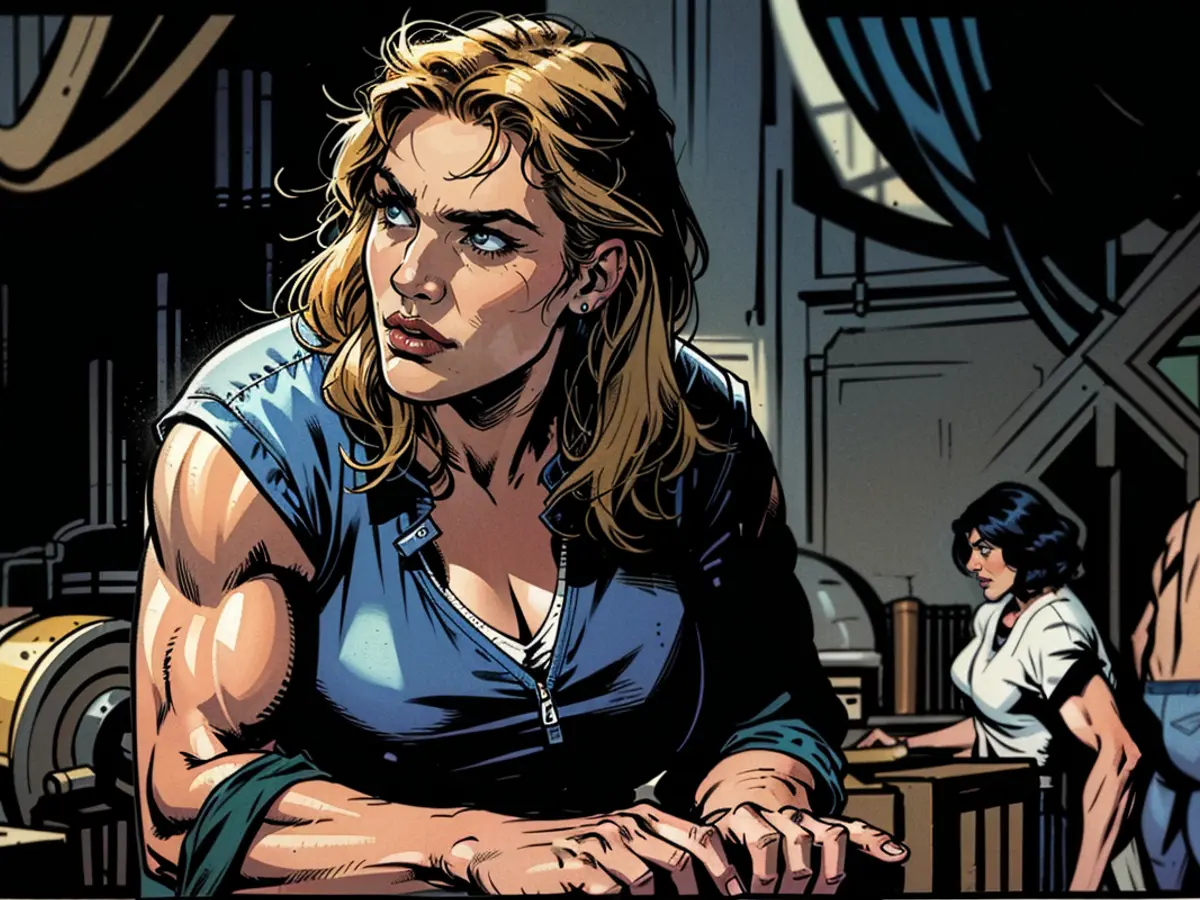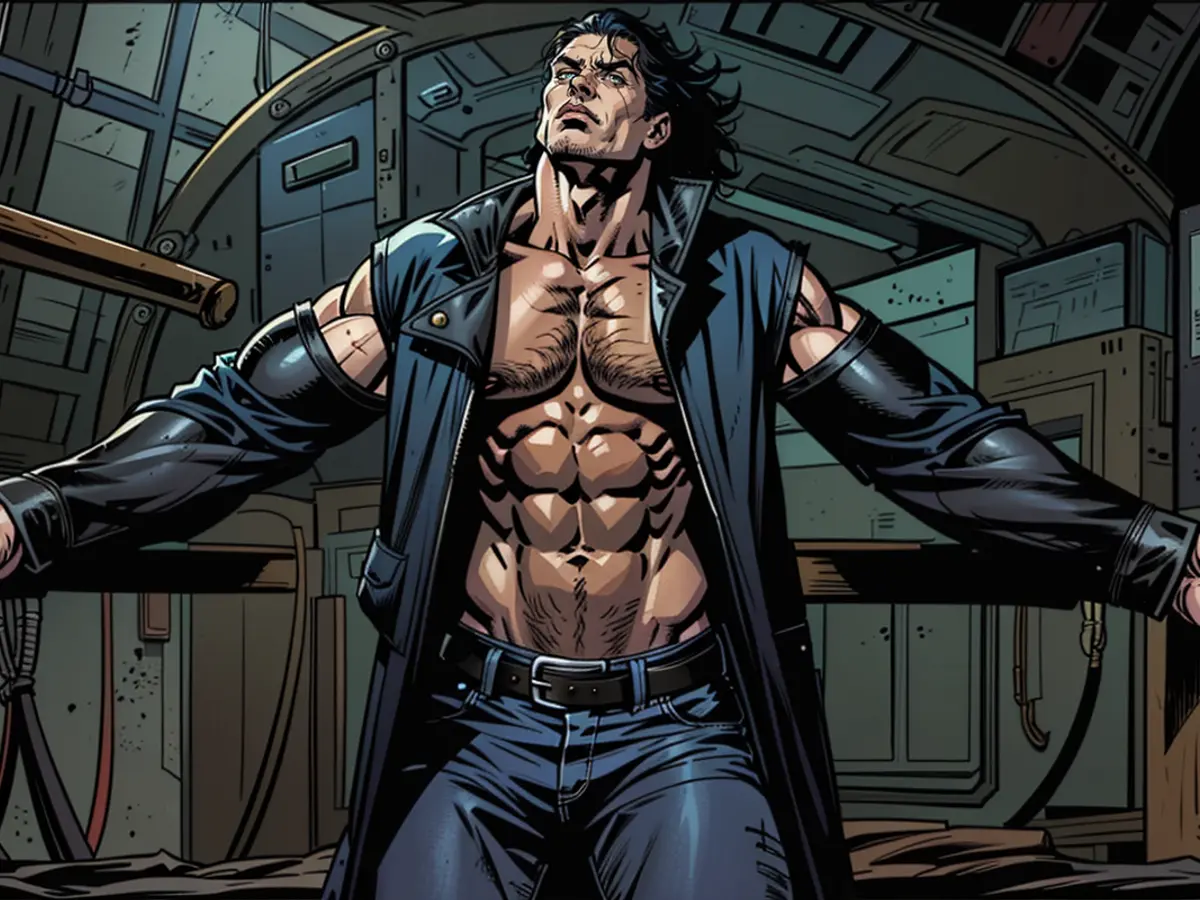- 125 years ago, Alfred Hitchcock was born, which is why he's still the greatest filmmaker
His name is still a synonym for thrilling entertainment 125 years after his birth: Alfred Hitchcock mastered the art of playing with his audience's emotions like no other, confronting them with ever-new human abysses. Today, he is considered the greatest filmmaker of all time, with generations of filmmakers venerating and learning their craft from his works.
Privately, Hitchcock led a seemingly quiet life: he was married to editor Alma Reville for 54 years, until his death, having met her in 1921 and married her in 1926. Their daughter, Patricia, was born two years later.
Hitchcock's ability to delve into the depths of human nature behind his bourgeois facade can be attributed to his strict upbringing. His father once allegedly had him locked up in a prison for a few hours as punishment. This experience may have been the origin of a recurring motif in Hitchcock's work: the innocent persecuted.
A good filmmaker needs not only visions but also the technical ability to bring them to the screen. And no one could do this better than the London-born Hitchcock, who was born on August 13, 1899. He learned the film business from the ground up, writing intertitles for silent films in his twenties and later learning to direct at the Ufa Studios in Babelsberg, then the most modern in the world.
His first solo film was "Number 13" in 1922, but it remained unfinished. With "The Lodger" in 1926, he found the genre that would make him famous: the thriller. The film was his first major success. In 1929, he successfully transitioned to sound film with "Blackmail". In the 1930s, he achieved some early highlights of his overall work with spy thrillers like "The 39 Steps", "The Man Who Knew Too Much" (which he remade in the 1950s), and "The Lady Vanishes". Hitchcock's reputation as the best British director of his time reached Hollywood, and legendary producer David O. Selznick ("Gone with the Wind") brought him to the USA in 1940. Hitchcock moved to Los Angeles with his family and would live there for four decades until his death.
His first collaboration with Selznick won an Oscar: "Rebecca" was awarded Best Picture in 1941. However, as the Oscar goes to the producer, Hitchcock went empty-handed and would never win an Oscar in his lifetime, joining the ranks of great filmmakers like Stanley Kubrick and Ernst Lubitsch who also never received this honor.
Hitchcock reached his creative peak in the 1950s, with influential films like "Rear Window" (1954), "To Catch a Thief" (1955), "Vertigo" (1958), "North by Northwest" (1959), and "Psycho" (1960) released in quick succession. These six years alone are enough to secure him a place in the pantheon of filmmakers.
Throughout his career, Hitchcock worked with nearly all the great actors of his time, including James Stewart, Cary Grant, Henry Fonda, Grace Kelly, Sean Connery, Paul Newman, Anthony Perkins, Joseph Cotten, Charles Laughton, Ingrid Bergman, Doris Day, Gregory Peck, and Julie Andrews, among others. He also collaborated with German actors, including Marlene Dietrich, Günter Strack, Hansjörg Felmy, and Wolfgang Kieling.
Hitchcock also sought out the best in other areas: technicians, cinematographers, and even for the design of his opening credits, he only worked with professionals. His films' music became famous as well, with composer Bernard Herrmann as his long-time collaborator, whose scores greatly contributed to the films' impact.
Blondes Preferred
Hitchcock often cast blonde women in his leading female roles. For a long time, he was fixated on the type of the cool, unreachable blonde, with Grace Kelly being his prototype. However, after she married Prince Rainier of Monaco and retired from acting, he discovered new actresses like Kim Novak, Eva Marie Saint, Janet Leigh, and Tippi Hedren. But in his later years, his behavior towards these women became increasingly obsessive. He interfered in their private lives, dictated their wardrobe and styling off-set, and made advances in some cases.
On-screen, Hitchcock also lost all sense of proportion. In the famous shower scene from "Psycho", he had Janet Leigh brutally executed on camera. Tippi Hedren was tormented during the filming of "The Birds": in one scene, she had to enter a room filled with birds. For a week, men in protective suits threw live birds at her. One bird narrowly missed her left eye and left a deep gash. She suffered a nervous breakdown afterwards.
Despite this, she made another film with the director: in "Marnie" (1964), Hitchcock made her the victim of a brutal rape - a scene unprecedented in film history. His own sexual obsessions increasingly seeped into his later films. His alcohol consumption increased. Even his final triumph, "Frenzy" (1972), was marked by extremely brutal depictions of women's murders, which the camera seemed to enjoy watching.
In 1979, Alfred Hitchcock finally received one of the highest honors in the film industry: the American Film Institute awarded him the AFI Life Achievement Award. Thirteen months later, on April 29, 1980, he died. His films, however, continue to be watched today.
Also Read:
- The Master of Horror Can Also Be Funny
- How Hitchcock Created Horror
- "Marnie" and "Frenzy": The Horror for Women
Other directors drawn to Hitchcock's themes include the Coen brothers, who explored similar themes in their film "Fargo," including the innocent persecuted. Including fruit in their suspenseful storytelling, directors like M. Night Shyamalan in "The Sixth Sense" and Christopher Nolan in "Memento" often surprise audiences with unexpected twists.







